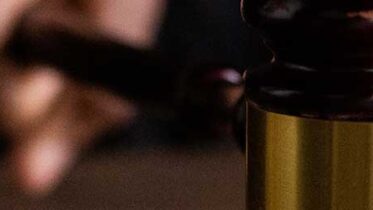Trademarks and Marijuana
- 30 September 2019
- Articles
Gabriela W. Gutiérrez, attorney of Clarke Modet’s Legal Department
Is it possible to register a mark for a marijuana product? This question has been answered by trademarks organizations in different ways, the mainstream stance being that which is deemed more consistent with the law.
It is publicly known that economic activities involving marijuana and cannabis, such as the elaboration, manufacture, transformation and preparation of products derived from these plants, are prohibited under Law No. 20,000, which prohibits illicit traffic of narcotic drugs and psychotropic substances.
In this connection, part of the population has tended to stigmatize users of this type of drugs, in spite that their use is not penalized by law, unless it is carried out in public places. Moreover, stigmatization usually also extends to alternative medicine treatments based on medicinal products developed from marijuana and cannabis plants.
This social perception has moved to areas as specific as the trademark registration. Article 20, indent k) of the applicable law in this regard (No. 19,039) prohibits the registration of marks which are contrary to public order, accepted principles of morality and the principles governing commercial ethics and fair competition. This provision has been relied upon by the National Institute of Industrial Property (Instituto Nacional de Propiedad Industrial, INAPI) to reject various trademarks applied specifically for products related to this type of drug, on the basis that such signs are not registrable as they constitute a transgression to public order.
According to the aforementioned industrial property law, when an application for trademark registration is rejected, the applicant can appeal to the Honorable Industrial Property Court, a higher, jurisdictional and collegiate body with competence to confirm or overturn the INAPI’s decision.
Thus, several applicants for trademark registrations involving marijuana and cannabis that have been rejected by INAPI have had to lodge appeals before the aforementioned Court, arguing, basically, that the referenced products are not per se unlawful and that the corresponding trademarks do not include the expressions marihuana or cannabis, for which reason, additionally, they are not at odds with public order or accepted principles of morality. Said arguments were also raised before the INAPI, but dismissed by said body. Conversely, the Industrial Property Court did uphold said arguments in recent judgments, overturning the INAPI’s decisions, thus securing favorable outcomes for the respective appellants.
The aforesaid judgments rendered by the Industrial Property Court establish a new criterion in the case law of this matter. Indeed, the arguments presented by the appellants, with which the Honorable Court has agreed, pertain to the fact that currently applicable Chilean legislation allows for the commercialization of pharmaceutical products prepared based on marihuana or cannabis, provided that the same have been granted the proper authorization from the Public Health Institute (Instituto de Salud Pública), and that a medical prescription is presented at the stores where these products are commercialized, in order to ensure their use in accordance with the relevant prescription.
Since the Regulation on Narcotics allows for the commercialization of marihuana and medicinal cannabis (clearly and restrictedly establishing its requirements), the prohibition contained in Law No. 20,000, to which the National Institute of Industrial Property has resorted to argue an alleged violation of public order, loses all justification.
This argument opens a gateway for companies producing marihuana and medicinal cannabis products to bring their business to Chile. An important step in this sense is to file the corresponding registration applications of their trademarks in Chile, along with the completion of all processes to obtain the sanitary registry granted by the Public Institute of Health.
Consequently, and as a recommendation, it would be convenient to avoid including the notions of “marihuana” and “cannabis” in the trademark’s name, in order to decrease the possibilities of its rejection by the INAPI based on the fact that the trademark itself contains the referenced expressions, contrary to the precedents quoted above.
This Article was originally published in Spanish on El Mercurio on August 29, 2019.









